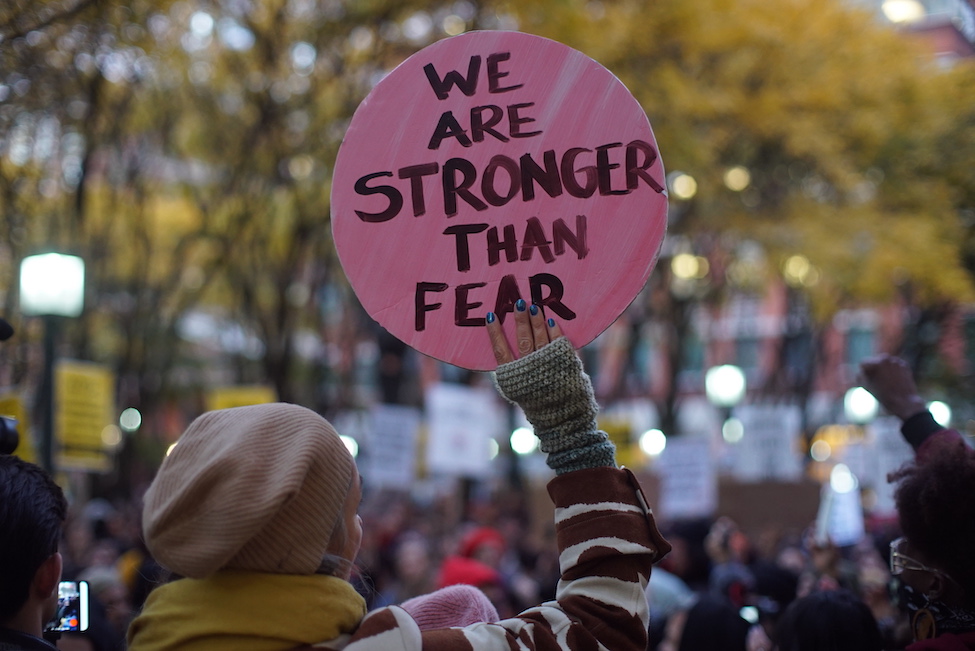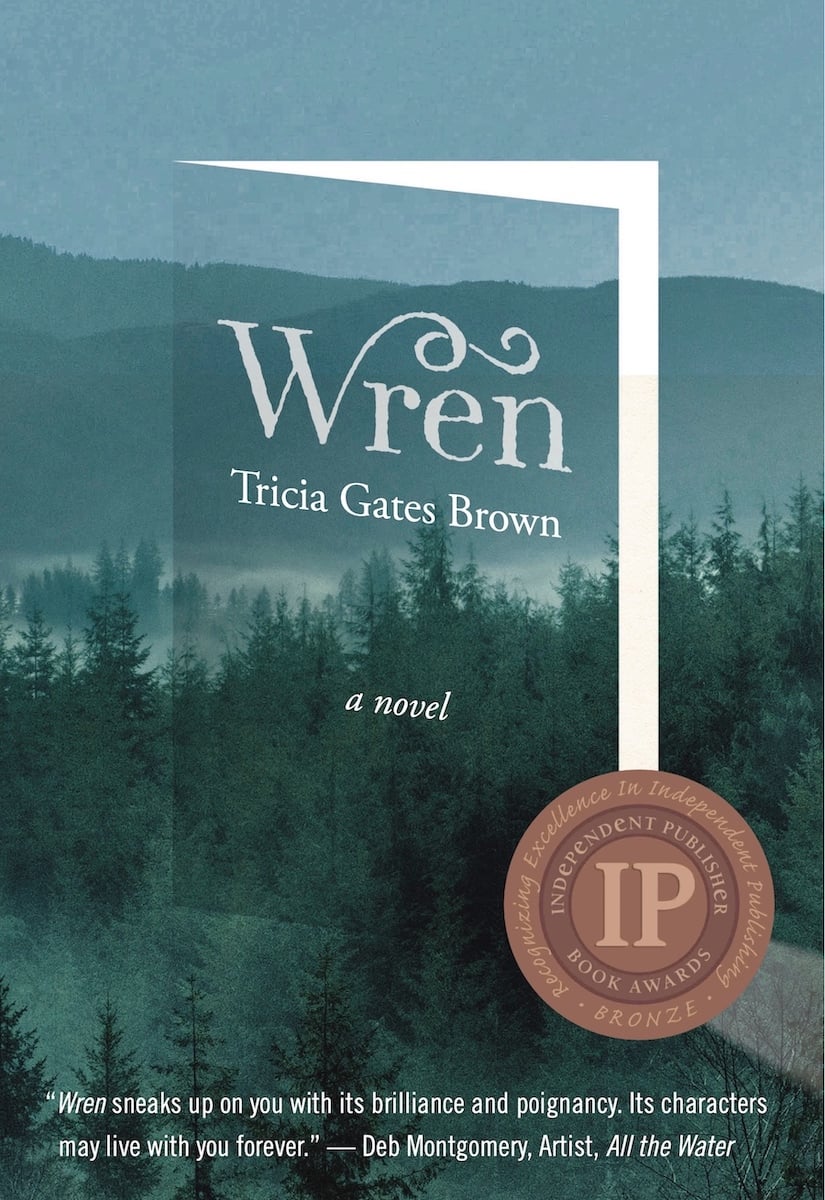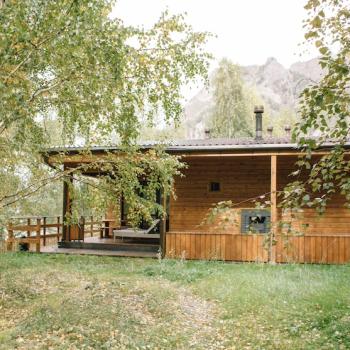
I am somewhat haunted by a woman I passed in Florence, Italy while vacationing in the late 90s. Since my teens I had dreamt of visiting Florence, and then there I was—living out the fantasy. But one day walking down a side street, I saw this woman. She apparently had Hansen’s disease, formerly called leprosy. Draped in black tatters from head to toe, she appeared to beg as she quickly passed—her bandaged hand perpetually holding out some kind of sign. Upon seeing her, I was overwhelmed. It was easy to keep walking, to pass by, thinking of my next Florentine meal, my next visit to an enchanting cathedral or a piazza crowded with doves. Yet the collision of my life and that woman’s reverberated loudly. So distracted and overwhelmed was I that I passed her by, seemingly ignoring her—but I wasn’t ignoring her because I remembered her vividly.
I once heard we should ask: What does our faith matter for the most powerless person we have encountered? When I hear the challenge, this woman comes to mind. Who do you think of?
In late 2020 I was part of a clergy group studying antiracism. A somewhat charged discussion ensued about whether clergy should openly confront Trumpism from the pulpit (or specific actions of the Trump administration). One person said it shouldn’t be done because it would make some people uncomfortable. If one was direct in such a confrontation, one should acknowledge the discomfort of these people and their possible exit from church. Others felt it important to call out oppressive political actions, stating that the good news proclaimed by Jesus and the gospel writers was and is inherently political.
One’s Christian faith should matter for the most powerless person one has encountered. And if it isn’t good news for them—for their very real lives and problems in this world—then we have no business calling the Christian message good news. And in speaking of things that are good news to people’s real lives and problems, we are discoursing about things political. I categorically reject the idea that the promise and possibility inherent in the Christian faith is contained in post-death, “eternal life” experiences.
Since the beginning of the Trump administration (since his campaign, really), autocracy[1] has been looming. And though Trump was defeated in 2020, the threat of autocracy didn’t abate. To this day, Trumpism thrives. Many have spelled out Trump’s autocratic-trending, presidential norm-busting actions and how they have influenced the Republican party (one good example being Bob Bauer & Jack Goldsmith in their book After Trump: Reconstructing the Presidency (Lawfare Institute, 2020)). The 45th U.S. President was and is an autocrat. Some might say nearly half of American voters supported him in 2020 because of his economic or social-conservative policies with no affection for autocracy. Yet 2018 research conducted by Democracy Fund’s ‘Voter Study Group’ found that “more than a quarter of respondents showed at least some support for either a ‘strong leader’ or ‘army rule.’” While terms like “strong leader” can mean different things, the study was chilling and predictive.
I propose clergy must speak out against the rise in autocracy. We are in the position we’re in as Americans—as a democracy—because Trump’s party has acquiesced to autocracy’s encroachment, refusing to speak against it as Trumpism has plodded on. Out of fear. Out of ambition. Out of self-justification.
I was recently reminded of the quote by Edmund Burke: “The only thing necessary for the triumph of evil is for good men to do nothing.” Since my youth, this idea has challenged me. It has been alarming over the past seven or so years to see how easily a major American political party fell silent in the face of rising autocracy. People who early in Trump’s candidacy called him out as a racist demagogue fell in step as soon as their personal ambitions were threatened—even joining Trump’s most ardent boosters.
How can we think people of faith should be neutral or silent in the face of autocracy—especially when white conservative Christians now make up the most intransigent proponents of Trumpism? In my view, the question is not whether or not Christian clergy should take a stand against autocracy—including the Trumpist movement; the question is how. Surely, we see myriad ways of reacting to or speaking against Trumpism. Many are demeaning and divisive— responses not only unbecoming of clergy but damaging to our fragile national union and thus to democracy. Nonetheless, speaking up—even from the pulpit—is appropriate and called-for in this time. It is part of how we engage our faith to advocate for those most powerless: the people who always suffer most under autocracy.
Franciscan teacher Richard Rohr wrote that “2020 has been an unprecedented year, unlike anything I have seen in my 77 years—and we are not out of the woods yet. Where we go from here will write the story of this chapter of history.” He goes on to teach that binary thinking (good guys/bad guys, etc.) will not get us out of this situation. Only a unifying consciousness born of contemplation can meet this moment and allow us to heal divisions that make us vulnerable to such encroachments as autocracy, pointing out that healthy religion (re-ligio = to re-ligament or bind together) is key to this effort. (And I do recognize the binary language in the Burke quote referenced above).
But healthy religion requires religious leaders both spiritually healthy as well as brave and strong enough to speak directly from that spiritual place to the political struggles of our day, in ways that do not blast others, but that offer moral clarity and hope.
So, clergy friends and others, go and speak fearlessly.
Thank you for supporting my work by subscribing (free).
Wren, winner of a 2022 Independent Publishers Award Bronze Medal
[1] I offer as the definition of autocracy, the following definition from Wikipedia: “Autocracy is a system of government in which supreme political power to direct all the activities of the state is concentrated in the hands of one person, whose decisions are subject to neither external legal restraints nor regularized mechanisms of popular control.”














